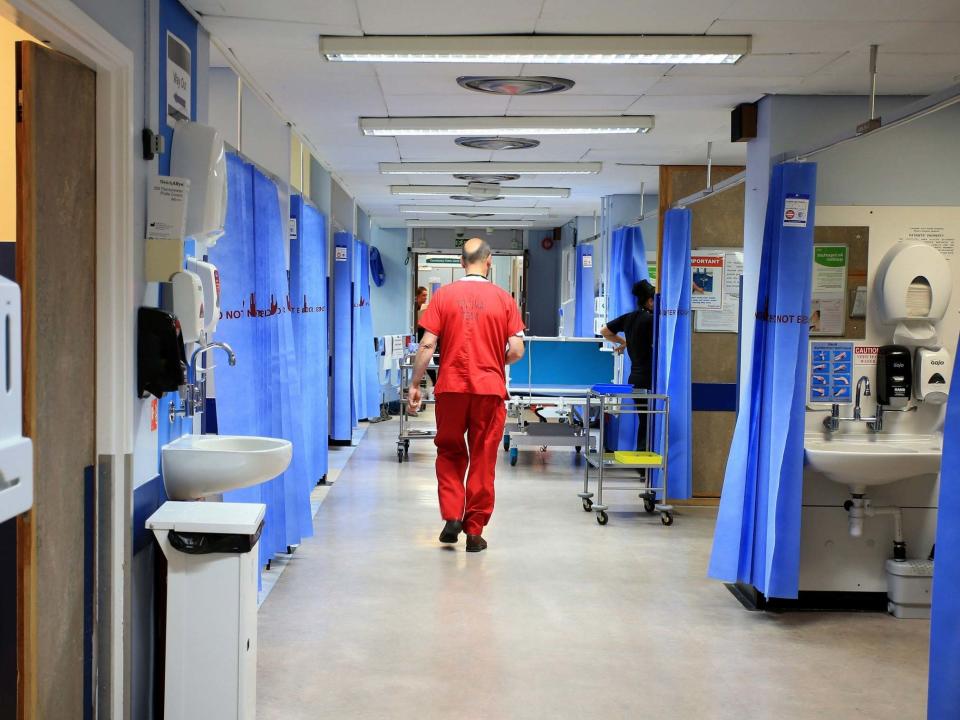The NHS staffing crisis is about the expanding knowledge gap – not just numbers

A lot has been written about the workforce crisis in health and social care. 43,000 registered nurse vacancies, a 48 per cent drop in district nurses in eight years and not enough GPs to meet demand.
When we talk about workforce, the focus is always on numbers. There are campaigns for safe staffing ratios and government ministers like to tell us how many more nurses we have.
But safety is not just about numbers. Recent workforce policy decisions have promoted a more-hands-for-less-money approach to staffing in healthcare. More lower-paid workers mean something in the equation has to give. In this case, it’s skill and expertise.
Healthcare has failed to keep frontline expertise in clinical areas due to archaic attitudes to the value of the experienced workforce. I am often told by nurses that to be promoted, they have to go into management – but their skills and experience remain unrewarded. This is very different to other safety critical industries where such skill is more readily remunerated and staying at the frontline more readily accepted.
I’ve seen this workforce policy in action through visiting an elderly relative in hospital. There are a lot of kind, caring people, the ward doesn’t seem short-staffed, vital signs are taken, food is delivered and blood sugars are checked, but no one is in charge of care and important issues such as discharge planning go undone.
Concerns are expressed and met with reassurance, but no action. It’s no one’s job to look at the big picture, to put all the pieces together. My relative, for example, is no longer acutely unwell and does not need an acute bed – yet for no good reason apart from the fact that no one is managing care or planning discharge, that bed is still occupied. No one seems to know quite what is going on. In a system where acute beds are in huge demand, it's hard to see why investing in a skilled workforce who can manage care is not a good return on taxpayers money.
Skill and expertise are as important in health as much as they are in any other safety-critical work. The ability to synthesise knowledge and make decisions is key. Situations change, and people too – but while trying to reduce care to easy to follow pathways to help mitigate the loss of skill is a common approach, it’s not the best one. Instead of patient-centred care, we risk the delivery of tasks with no co-ordination or the knowledge and confidence to make decisions.
The skill in the organisation of care once belonged to registered nurses. They knew local services, assessed patients and made referrals. When this kind of expertise is not valued it simply disappears. It’s not technical but it is essential knowledge and without it, care is mechanistic even if it is done with a smile and a kind word.
More enquiries to the NHS Trust where my relative is, indicate that the nursing staff are no longer responsible for discharge planning, it’s the medical staff. However, the medical staff deem it “social” and have handed it off to the discharge coordinator, but no one is quite sure who that is. Division of labour has become common in healthcare. The work is chopped up and given to others often with a disjointed end-result, often forgetting that there is a person in the middle of the “work”.
A colleague in the community the other day remarked how care homes are the general medical wards of the past, with more acutely ill people needing expert nursing care. The need for this expertise is growing with demand – not shrinking, which makes a policy of more, but less skilled workers a very risky approach.
We do have a workforce crisis, but it goes beyond numbers. It also means frontline skills are diluted and doing tasks becomes the key measurable indicator, even if the doing has little meaning or effect on outcomes.
Healthcare services today have ended up with a huge “rookie factor” in which inexperienced people are teaching even more inexperienced people. We need to fill the vacancies, but we also need to fill the ever-widening skills gap that has emerged.
We need to retain frontline expertise before it disappears. Once it’s gone, it will be almost impossible to recover.
Alison Leary is a professor of healthcare and workforce modelling at London South Bank University
Read more
Waiting times for A&E and hospital operations worst on record

 Yahoo Finance
Yahoo Finance 